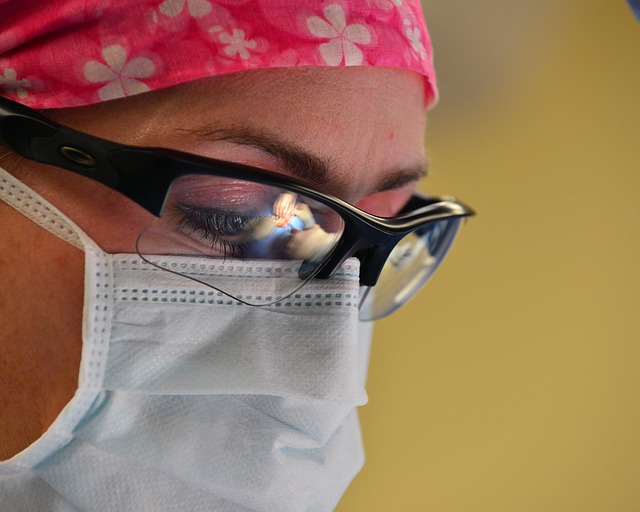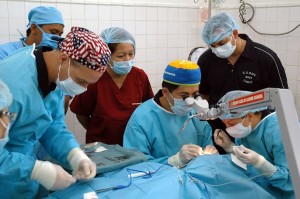- Calls to this hotline are currently being directed to Within Health, Fay or Eating Disorder Solutions
- Representatives are standing by 24/7 to help answer your questions
- All calls are confidential and HIPAA compliant
- There is no obligation or cost to call
- Eating Disorder Hope does not receive any commissions or fees dependent upon which provider you select
- Additional treatment providers are located on our directory or samhsa.gov
Gastric Bypass Surgery and Eating Disorder Development in Middle-Aged Adults

Contributor: Crystal Karges, MS, RDN, IBCLC, Special Projects Coordinator at Eating Disorder Hope/Addiction Hope
More and more individuals across the nation are struggling with obesity and adverse effects of obesity. In addition, the surmounting stigma that has been created due to the hyper focus on obesity, our nation has created significant shame and guilt for those who might be obese.
Turning to Gastric Bypass
For these and many other reasons, many individuals are turning to gastric bypass surgery as a weight loss solution, in search of a way to achieve a more desirable weight and body image. Some individuals find themselves pushed into this option by doctors or other health professionals, while friends, family members, or even societal pressures may influence others.
While opting for gastric bypass surgery might seem like an optimal solution for obesity, it is not a decision that should be taken lightly. Undergoing bypass surgery is not without many risks and challenges. Electing for bypass solution does not solve any previous eating behaviors that may have contributed to weight gain or a fluctuation in the first place, and it is important to address any potential underlying issues prior to a surgery.
Challenges of Bariatric Surgeries
 Other challenges concerning gastric bypass surgery revolve around how a person is able to eat post-surgery. While there are various types of bariatric surgeries available with differing requirements post-surgery, most bariatric surgeries severely limit or restrict the capacity of food that a person is able to ingest.
Other challenges concerning gastric bypass surgery revolve around how a person is able to eat post-surgery. While there are various types of bariatric surgeries available with differing requirements post-surgery, most bariatric surgeries severely limit or restrict the capacity of food that a person is able to ingest.
For a person who may have had a preexisting eating disorder, such as binge eating disorder, or who may even be predisposed to developing an eating disorder, the restrictions involved post bariatric surgery can be difficult to manage and even trigger more severe issues.
In some instances, physical symptoms can result in addition to disordered eating patterns post bariatric surgery that create eating-related problems, such as nausea/vomiting, malabsorption, diarrhea, and more, which can be distressing to an individual.
Understanding the many different complications that can potentially arise are important to address with qualified health professional in order to make the most educated choice when it comes to bariatric surgery.
Community Discussion – Share your thoughts here!
What do you think are the some of the pros and cons of bariatric surgery for an individual who is struggling with obesity? What are important factors to address prior to this decision?
 About the Author: Crystal is a Masters-level Registered Dietitian Nutritionist (RDN) with a specialty focus in eating disorders, maternal/child health and wellness, and intuitive eating. Combining clinical experience with a love of social media and writing, Crystal serves as the Special Projects Coordinator for Eating Disorder Hope/Addiction Hope, where her passion to help others find recovery and healing is integrated into each part of her work.
About the Author: Crystal is a Masters-level Registered Dietitian Nutritionist (RDN) with a specialty focus in eating disorders, maternal/child health and wellness, and intuitive eating. Combining clinical experience with a love of social media and writing, Crystal serves as the Special Projects Coordinator for Eating Disorder Hope/Addiction Hope, where her passion to help others find recovery and healing is integrated into each part of her work.
As a Certified Intuitive Eating Counselor, Crystal has dedicated her career to helping others establish a healthy relationship with food and body through her work with EDH/AH and nutrition private practice.
The opinions and views of our guest contributors are shared to provide a broad perspective of eating disorders. These are not necessarily the views of Eating Disorder Hope, but an effort to offer discussion of various issues by different concerned individuals.
We at Eating Disorder Hope understand that eating disorders result from a combination of environmental and genetic factors. If you or a loved one are suffering from an eating disorder, please know that there is hope for you, and seek immediate professional help.
Last Updated & Reviewed By: Jacquelyn Ekern, MS, LPC on January 28, 2016
Published on EatingDisorderHope.com

The EatingDisorderHope.com editorial team comprises experienced writers, editors, and medical reviewers specializing in eating disorders, treatment, and mental and behavioral health.

